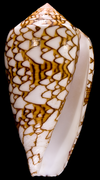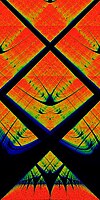David Ruelle
This article includes a list of general references, but it lacks sufficient corresponding inline citations. (February 2013) |
David P. Ruelle | |
|---|---|
 David Ruelle | |
| Born | 20 August 1935 |
| Nationality | Belgian |
| Alma mater | Université Libre de Bruxelles |
| Awards |
|
| Scientific career | |
| Fields | Mathematical physics |
| Institutions | ETH Zurich Institute for Advanced Study Institut des Hautes Études Scientifiques Rutgers University |
David Pierre Ruelle (French: [ʁɥɛl]; born 20 August 1935) is a Belgian-French mathematical physicist. He has worked on statistical physics and dynamical systems. With Floris Takens, Ruelle coined the term strange attractor, and founded a new theory of turbulence.[1]
Education and career
Ruelle studied physics at the Université Libre de Bruxelles, obtaining a PhD degree in 1959 (prepared at ETH Zurich [1]). He spent two years (1960–1962) at the ETH Zurich, and another two years (1962–1964) at the Institute for Advanced Study in Princeton, New Jersey. In 1964, he became Professor at the Institut des Hautes Études Scientifiques (IHES), in Bures-sur-Yvette, France. Since 2000, he is an Emeritus Professor at IHES and distinguished visiting professor at Rutgers University.
Awards and honors
In 1985, Ruelle was awarded the Dannie Heineman Prize for Mathematical Physics. In 1986, he received the Boltzmann Medal for his outstanding contributions to statistical mechanics, and in 1993 the Holweck Prize. In 2004, he received the Matteucci Medal, and in 2006 the Henri Poincaré Prize. In 2012 he became a fellow of the American Mathematical Society.[2] In 2014, he was awarded the Max Planck Medal for his achievements in theoretical physics.[3]
Books
- (1969) Statistical Mechanics: Rigorous Results, World Scientific[4]
- (1978) Thermodynamic formalism : the mathematical structures of classical equilibrium statistical mechanics, Addison-Wesley. ISBN 0-201-13504-3.;[5] (1984) Cambridge: University Press ISBN 0-521-30225-0. 2e (2004) Cambridge: University Press ISBN 0-521-54649-4
- (1989) Elements of differentiable dynamics and bifurcation theory, Academic Press.[6]
- (1989) Chaotic Evolution and Strange Attractors: The Statistical Analysis of Time Series for Deterministic Nonlinear Systems, Cambridge University Press
- (1991) Chance and Chaos, Princeton University Press
- (2007) The Mathematician's Brain, Princeton University Press
See also
- Transfer operator
- Ruelle zeta-function
- Dobrushin–Lanford–Ruelle equations
- Haag–Ruelle scattering theory
- Sinai-Ruelle-Bowen measure
References
- ^ Ruelle, David; Takens, Floris (1971). "On the nature of turbulence". Communications in Mathematical Physics. 20 (3): 167–192. Bibcode:1971CMaPh..20..167R. doi:10.1007/bf01646553. S2CID 17074317.
- ^ List of Fellows of the American Mathematical Society, retrieved 2013-07-07.
- ^ "Preisträgerinnen und Preisträger 2014" [Laureates and award winners 2014] (in German). Deutsche Physikalische Gesellschaft. Archived from the original on 18 November 2013. Retrieved 10 December 2015.
- ^ Lieb, Elliott (1970). "Review: Statistical mechanics by D. Ruelle" (PDF). Bull. Amer. Math. Soc. 76 (4): 683–688. doi:10.1090/s0002-9904-1970-12505-8.
- ^ Babbitt, D. G. (1979). "Review: Thermodynamic formalism by D. Ruelle" (PDF). Bull. Amer. Math. Soc. (N.S.). 1 (6): 931–935. doi:10.1090/s0273-0979-1979-14695-0.
- ^ Shub, Michael (1991). "Review: Elements of differentiable dynamics and bifurcation theory by D. Ruelle" (PDF). Bull. Amer. Math. Soc. (N.S.). 24 (1): 199–211. doi:10.1090/s0273-0979-1991-15989-6.
External links
- 1935 births
- Living people
- 20th-century French mathematicians
- 21st-century French mathematicians
- Belgian mathematicians
- Belgian physicists
- Chaos theorists
- Free University of Brussels alumni
- Members of the French Academy of Sciences
- Foreign associates of the National Academy of Sciences
- Recipients of the Great Cross of the National Order of Scientific Merit (Brazil)
- Fellows of the American Mathematical Society
- ETH Zurich faculty
- Institute for Advanced Study visiting scholars
- Rutgers University faculty


